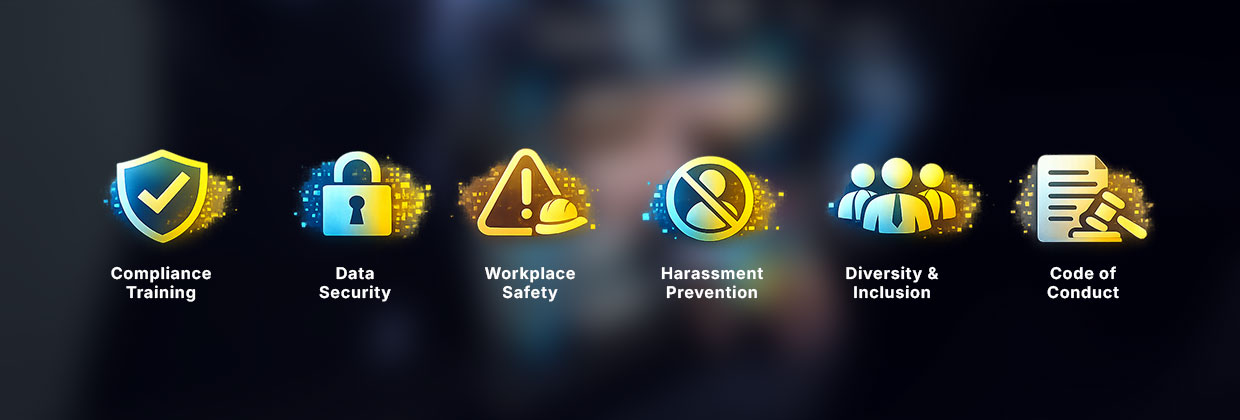eLearning for the Oil and Natural Gas Industry: Empowering Skills Development for Success

L&D requirements in the energy and oil businesses are unique. According to the Society of Petroleum Engineers (SPE) poll, three-quarters (74.6%) of employees agree that L&D programs are essential in their career path, and more than half (53.3%) agree that lack of options would cause them to contemplate quitting the firm (Source 1). Consequently, a workplace with such possibilities is more likely to attract and retain an organization’s best qualified and valued employees. Furthermore, the worldwide need for traditional and alternative energy sources places difficulties on businesses, thereby upskilling their workforce. While a learning management system software may not solve every problem, deliver the necessary training and swiftly spot who is qualified or near qualified to fill a position. It also assists with onboarding new workers and maintaining a high level of compliance while managing a workforce.
Organizations have realized that eLearning is critical to keep workers involved and engaged with the changing industry guidelines, attaining their career goals, shaping better organizational outcomes, and obtaining a high ROI. An end-to-end oil and gas training platform enable enterprises to efficiently manage their eLearning, boost training quality and productivity, and keep learners actively updated on the latest enhancements.
What are the training roadblocks faced in energy businesses?
With the changing shifts and transformation in the energy sector, organizations experience growing pains to become more sustainable and long-lasting. Let’s look at some of the training challenges that energy or oil companies might face regularly.
- A common problem faced by the energy industry is the inability to find qualified freshers or skilled talents with a good understanding of the industry. As a result, companies are burdened with in-house training to mold the employees to meet the expectations.
- With tight constraints around time, resources, and in-house expertise, it is often difficult for energy companies to conduct systematic training courses and programs for upskilling employees regularly.
- Providing hands-on experience and real-life training programs are not within the reach and budget of every energy company. Most energy companies depend on a localized solution that offers the expertise of skilled professionals closer to them.
- Employees or teams working in the field or in remote locations often miss out on the development programs and activities held at the office, leading to the disparity of skills and knowledge between the employees.
- Most energy companies heavily rely on in-house senior talents to conduct orientation and training programs for new joiners. However, this knowledge is limited to their personal experiences and could lead to a knowledge transfer gap.
- The lack of clear-cut standards and policies around workmanship in the energy sector leads to unstandardized and disconnected employee training.
- With the energy and oil industry being a rapidly advancing field with innovations and technologies, companies are often unable to keep up with regular training programs to meet the advancements.
Read more: Debunking Five Popular Myths about Corporate eLearning
Benefits of using an LMS for the oil and energy industry
The global LMS market is expected to develop at a compound annual growth rate (CAGR) of 19.1%, from USD 15.8 billion in 2021 to USD 37.9 billion by 2026. (Source 2) An effective LMS solution can make eLearning for the oil and natural gas industry easier to manage and deliver. Notable benefits of adapting to an effective LMS in the energy sector include:
- Larger scale, lesser cost – A multi-tenant LMS minimizes operational expenses by accommodating thousands of trainees from many locations into a single online training platform compared to traditional offline learning.
- Administration made easy – Reduce the administrative load associated with training a varied and scattered workforce. An LMS can automate and simplify time-consuming and repetitive operations.
- Compliance -Another significant advantage of utilizing an LMS solution is ensuring compliance with the many regulatory standards imposed on the energy and oil industry. An LMS can assure delivery of compulsory instruction and consistent assessment of an employee’s knowledge on the topic.
- Continuous training – As regulations, technology, and procedures evolve, a continuous solar training program ensures to keep your employees up to date and avoid costly errors in the industry.
- Customer satisfaction – Online customer training can act as an alternative to customer care for utility firms, providing a client experience that may enhance loyalty.
- Quick onboarding – LMS enables a robust onboarding process that helps new employees get started with their work faster. Engagement increases and the staff gets access to the tools and information needed to begin their work right away.
- Reporting and analysis – An LMS system helps to gather and analyze the training outcomes to assess employee and organizational performance. Furthermore, it can also show the effectiveness of the specific courses and subsequently reveal areas or concerns that need improvement.
- Improved security training – Whether offshore training, drill training, or oil & gas training, an online program reduces risk factors by providing the personnel with appropriate health and safety training.
Read more: Top 5 Essential Features for a Modern Corporate LMS
Why is Skill Lake a perfect LMS for oil & energy companies?
Skill Lake emphasizes holistic employee development through real-life skill training and job-based learning. The energy industry comprises several rules and regulations to comply with, necessitating workforce training to overcome skills gaps. Skill Lake’s competence management and advanced reporting features assist organizations in setting performance targets by taking a comprehensive perspective of individual talents appropriate for various work categories.
Skill Lake is a reliable platform for hosting energy management training courses and assessing workforce capabilities. From exploration through processing and distribution, energy businesses may utilize Skill Lake LMS to keep their staff well-trained and comply with the laws, reducing training costs and increasing productivity.
Take a quick demo to experience Skill Lake, or talk to our experts to know more about its features and tools.
Build a culture of continuous learning with Skill Lake’s state-of-the-art people development platform. Give your employees professional training to help them excel in their job roles and propel your business to greater efficiency and success.
Start Today

Sachin Krishna
Sachin is a passionate advocate of e-learning with a profound knowledge of the field. He regularly writes compelling content that captivates readers and works to spread awareness of learning solutions.